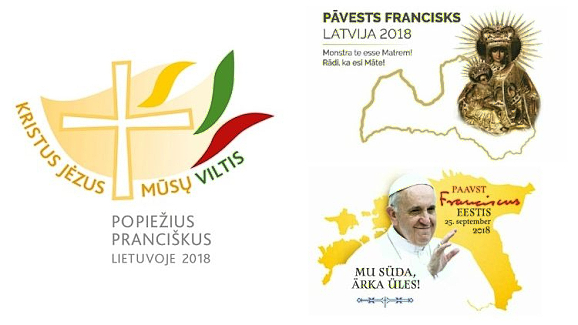
16 Sep 2018 | Focolare Worldwide
 The next international itinerary of Pope Francis’s apostolic journeys will be in Lithuania, Latvia and Estonia, which will take place from 22 to 25 September, on the occasion of the centennial celebrations of the first declaration of independence of the three Baltic states of Russia. Among the most important events will be the prayer at the Museum of Occupations and Freedom Fights, known as the Museum of the Genocide Victims in Vilnius (Lithuania), the ecumenical meeting in Riga (Latvia), and the visit to the beneficiaries of the Works of Charity of Tallin (Estonia). The visit to the so-called Genocide Museum will be particularly symbolical because it was used by the secret police of the Soviet Union from 1944, the year in which Lithuania returned under the control of the USSR, up to 1991 when it regained its independence. Besides hosting the officials of the State Security Committee, the building acted as the venue for interrogations and as a prison for the political opponents of the communist regime. But the history of horror in this building started even earlier, in 1941 when the Nazis invaded Lithuania and the building was set up as the general headquarters of the Gestapo. In the three years between 1941 and 1944, about 100 thousand victims, a third of the city’s inhabitants, mostly Jews, were killed in Vilnius alone. Precisely to recall these horrors of the occupation, the Government decided to convert the building into a place of remembrance. In the various legs of his trip, the Pope will pay homage to the painful history of a population which has remained deeply anchored to its own Christian roots, despite the persecutions.
The next international itinerary of Pope Francis’s apostolic journeys will be in Lithuania, Latvia and Estonia, which will take place from 22 to 25 September, on the occasion of the centennial celebrations of the first declaration of independence of the three Baltic states of Russia. Among the most important events will be the prayer at the Museum of Occupations and Freedom Fights, known as the Museum of the Genocide Victims in Vilnius (Lithuania), the ecumenical meeting in Riga (Latvia), and the visit to the beneficiaries of the Works of Charity of Tallin (Estonia). The visit to the so-called Genocide Museum will be particularly symbolical because it was used by the secret police of the Soviet Union from 1944, the year in which Lithuania returned under the control of the USSR, up to 1991 when it regained its independence. Besides hosting the officials of the State Security Committee, the building acted as the venue for interrogations and as a prison for the political opponents of the communist regime. But the history of horror in this building started even earlier, in 1941 when the Nazis invaded Lithuania and the building was set up as the general headquarters of the Gestapo. In the three years between 1941 and 1944, about 100 thousand victims, a third of the city’s inhabitants, mostly Jews, were killed in Vilnius alone. Precisely to recall these horrors of the occupation, the Government decided to convert the building into a place of remembrance. In the various legs of his trip, the Pope will pay homage to the painful history of a population which has remained deeply anchored to its own Christian roots, despite the persecutions.
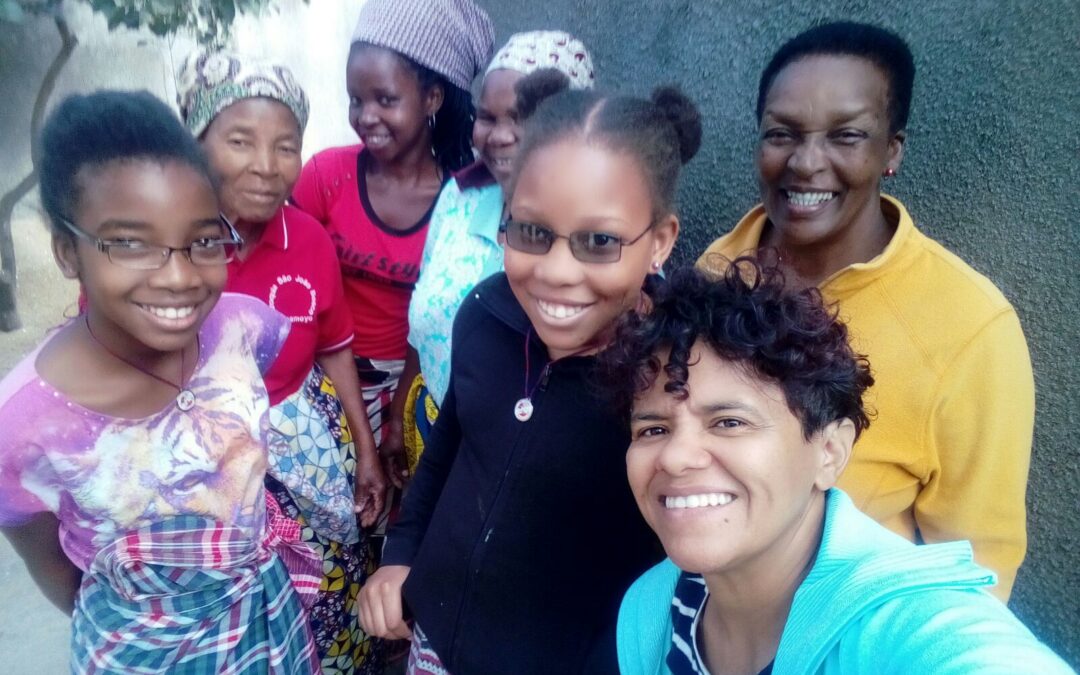
16 Sep 2018 | Focolare Worldwide
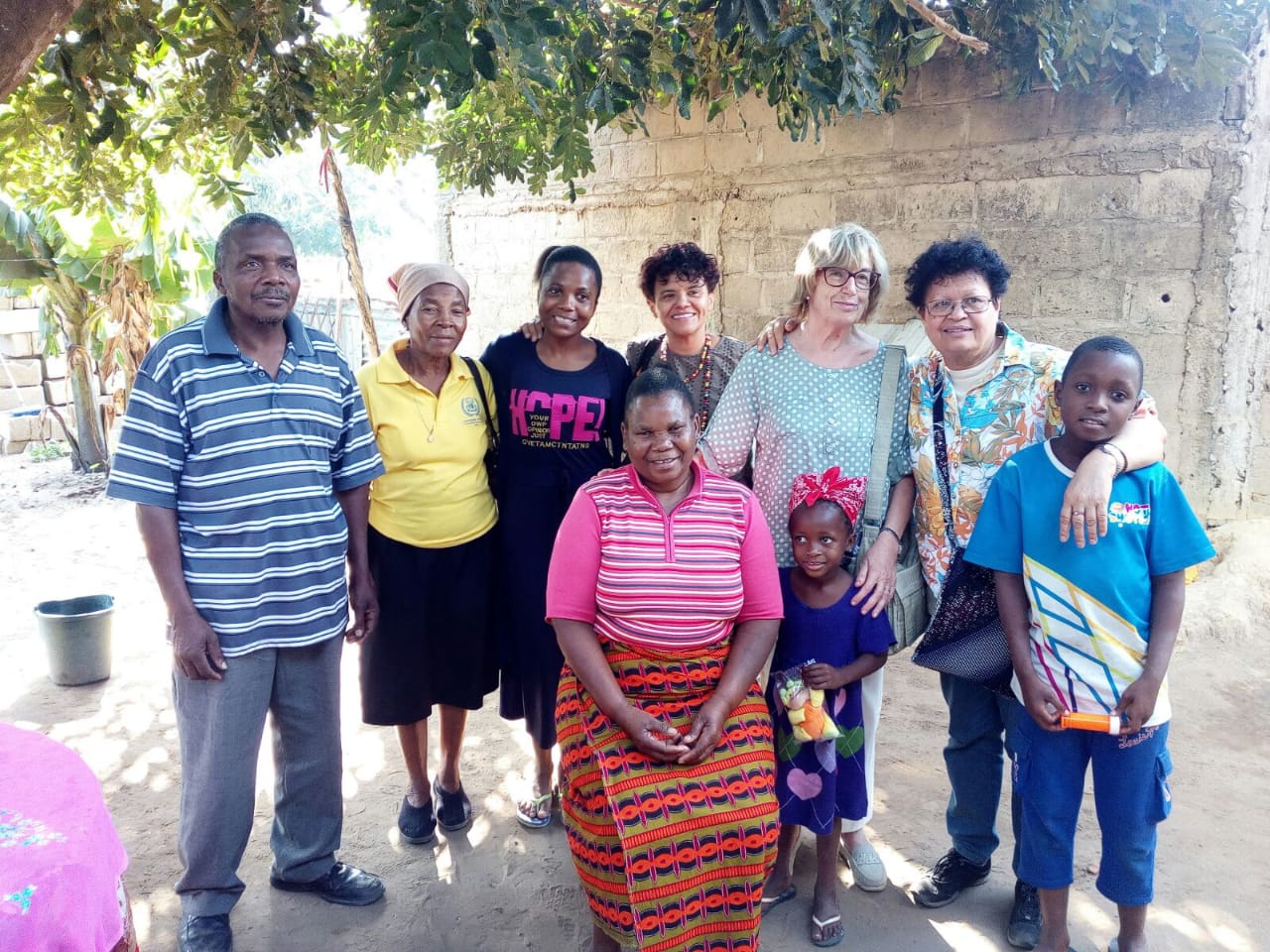 “Focolares that rove throughout the world,” is how Chiara Lubich described them – made up of young people, adults, families, religious or teens. It’s a project that is being repeated, after positive results and the fruits from this original way of meeting and exchange, which temporary focolares bring to various parts of the world. One of these was at Maputo, the capital and largest city of Mozambique, as well as the main port there in Delagoa Bay, which is on the Indian Ocean. This city in southern Africa is full of crowded and colorful markets, many of which are most alive in the evenings, and features a train station designed by Gustave Eiffel. From August 1–30, a temporary focolare was established there, made up of Antonietta, Giovanni and Perga (from Loppiano), Father Rogelio (a religious priest from Maputo), Father Stefan (from Switzerland) and Fatima (from the Johannesburg focolare). “When we got to Maputo, we immediately made a pact of unity between us. In the days that followed, in various meetings with people from there – young people, families at home, their workmates and friends, and men and women religious – we saw the light of Chiara Lubich’s charism enter their hearts, and they were fascinated by the Gospel becoming life.” There were also other beautiful family moments, such as those with Archbishop Francisco Chimoio, who told us to ‘not lose that joy and bring it to the world,’ and with Papal Nuncio Edgar Pena, who emphasized the importance of “sowing the seeds.’”
“Focolares that rove throughout the world,” is how Chiara Lubich described them – made up of young people, adults, families, religious or teens. It’s a project that is being repeated, after positive results and the fruits from this original way of meeting and exchange, which temporary focolares bring to various parts of the world. One of these was at Maputo, the capital and largest city of Mozambique, as well as the main port there in Delagoa Bay, which is on the Indian Ocean. This city in southern Africa is full of crowded and colorful markets, many of which are most alive in the evenings, and features a train station designed by Gustave Eiffel. From August 1–30, a temporary focolare was established there, made up of Antonietta, Giovanni and Perga (from Loppiano), Father Rogelio (a religious priest from Maputo), Father Stefan (from Switzerland) and Fatima (from the Johannesburg focolare). “When we got to Maputo, we immediately made a pact of unity between us. In the days that followed, in various meetings with people from there – young people, families at home, their workmates and friends, and men and women religious – we saw the light of Chiara Lubich’s charism enter their hearts, and they were fascinated by the Gospel becoming life.” There were also other beautiful family moments, such as those with Archbishop Francisco Chimoio, who told us to ‘not lose that joy and bring it to the world,’ and with Papal Nuncio Edgar Pena, who emphasized the importance of “sowing the seeds.’” 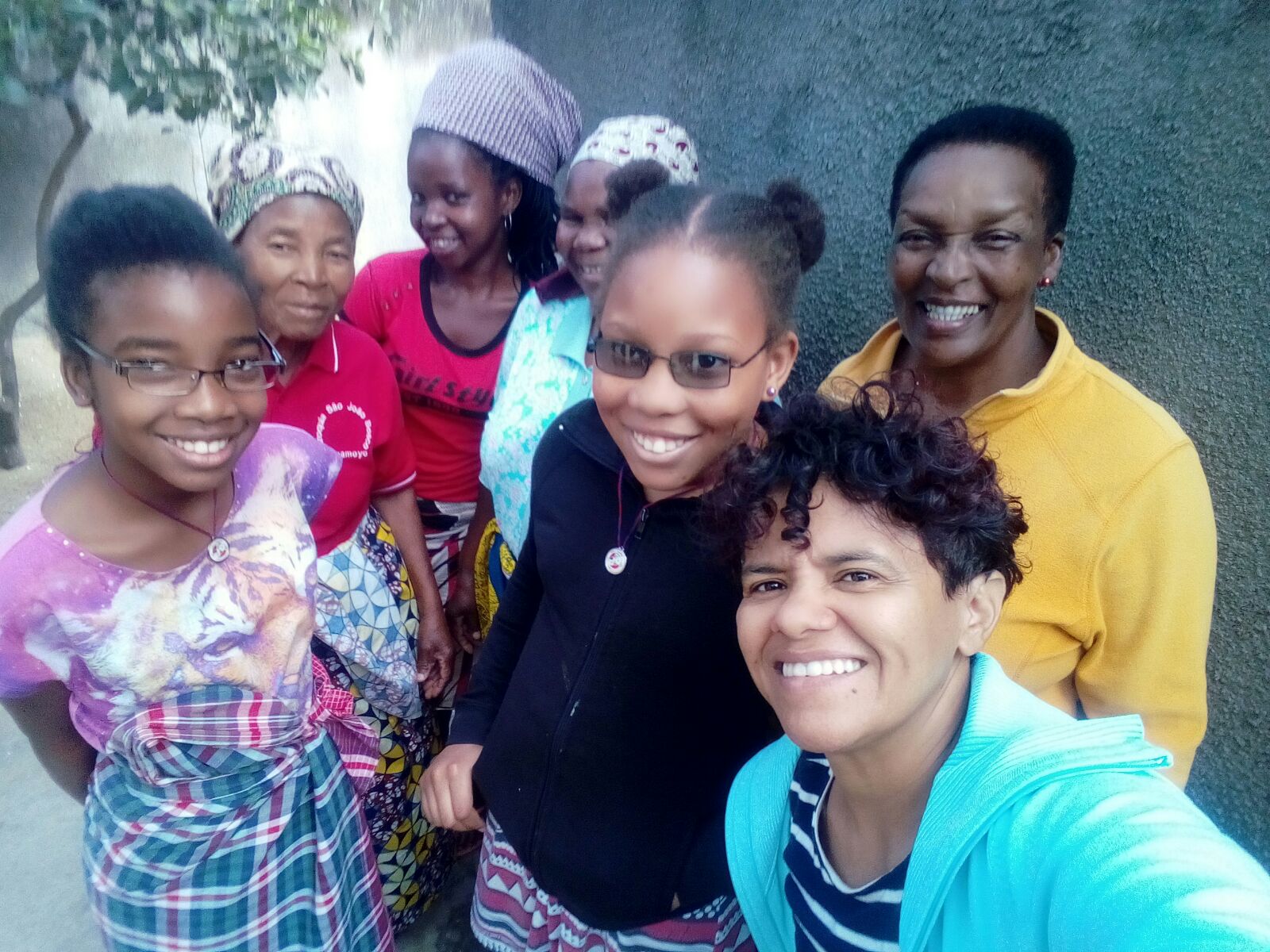 Three focolarine had a “tour” of Zimbabwe, although not as tourists. “It was an experience that I would recommend to many,” writes Cielito from Portugal, “since it opens your heart, mind and soul to the needs of humanity. The two weeks seemed like months, such was the intensity of each day.” After this they had a brief stop in Johannesburg, “which was our first approach to this continent’s poverty, although it would be quite different to what we would find afterwards.” Then the small group moved to Bulawayo, hosted by a friend in a suburban neighborhood, who shared so much despite her lifestyle of poverty. “Zimbabwe,” Cielito explains, “is a country that is mostly Christian, and people’s lives revolve around the parish, with a strong sense of belonging. Our friends from the Focolare had prepared for us a ‘tour’ of the city’s various parishes. We met more than a thousand people during those few days, many of which were children and young people. We presented ourselves and told of our experiences based on the Gospel. “Each morning we set out, entrusting ourselves to Mary, not knowing who we would meet. We put as many useful things as we could into our backpacks and away we went, trusting only in the Holy Spirit. Leaving God to direct our day, we were amazed at what he would do. “We found so much generosity, readiness and commitment, despite having only the poorest of means, and this for us was a great witness. “For the second week, we moved inland to a mission (a college the Jesuits founded 130 years ago), and from there we went for two days to a rural village that was quite far out, to visit a group of people who have been living the Word of Life for years. They are very poor, yet they were able to welcome us in an exquisite way. Their generosity, simple and profound faith, and the purity of their hearts won us over. In such a faraway place, in the middle of nowhere, we saw with our own eyes how truly universal the charism of unity is.”
Three focolarine had a “tour” of Zimbabwe, although not as tourists. “It was an experience that I would recommend to many,” writes Cielito from Portugal, “since it opens your heart, mind and soul to the needs of humanity. The two weeks seemed like months, such was the intensity of each day.” After this they had a brief stop in Johannesburg, “which was our first approach to this continent’s poverty, although it would be quite different to what we would find afterwards.” Then the small group moved to Bulawayo, hosted by a friend in a suburban neighborhood, who shared so much despite her lifestyle of poverty. “Zimbabwe,” Cielito explains, “is a country that is mostly Christian, and people’s lives revolve around the parish, with a strong sense of belonging. Our friends from the Focolare had prepared for us a ‘tour’ of the city’s various parishes. We met more than a thousand people during those few days, many of which were children and young people. We presented ourselves and told of our experiences based on the Gospel. “Each morning we set out, entrusting ourselves to Mary, not knowing who we would meet. We put as many useful things as we could into our backpacks and away we went, trusting only in the Holy Spirit. Leaving God to direct our day, we were amazed at what he would do. “We found so much generosity, readiness and commitment, despite having only the poorest of means, and this for us was a great witness. “For the second week, we moved inland to a mission (a college the Jesuits founded 130 years ago), and from there we went for two days to a rural village that was quite far out, to visit a group of people who have been living the Word of Life for years. They are very poor, yet they were able to welcome us in an exquisite way. Their generosity, simple and profound faith, and the purity of their hearts won us over. In such a faraway place, in the middle of nowhere, we saw with our own eyes how truly universal the charism of unity is.”
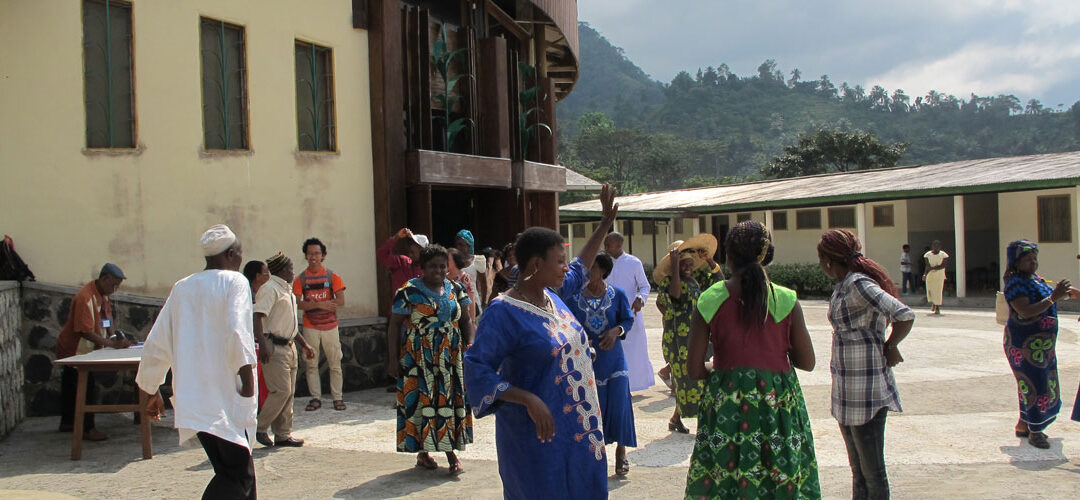
12 Sep 2018 | Focolare Worldwide
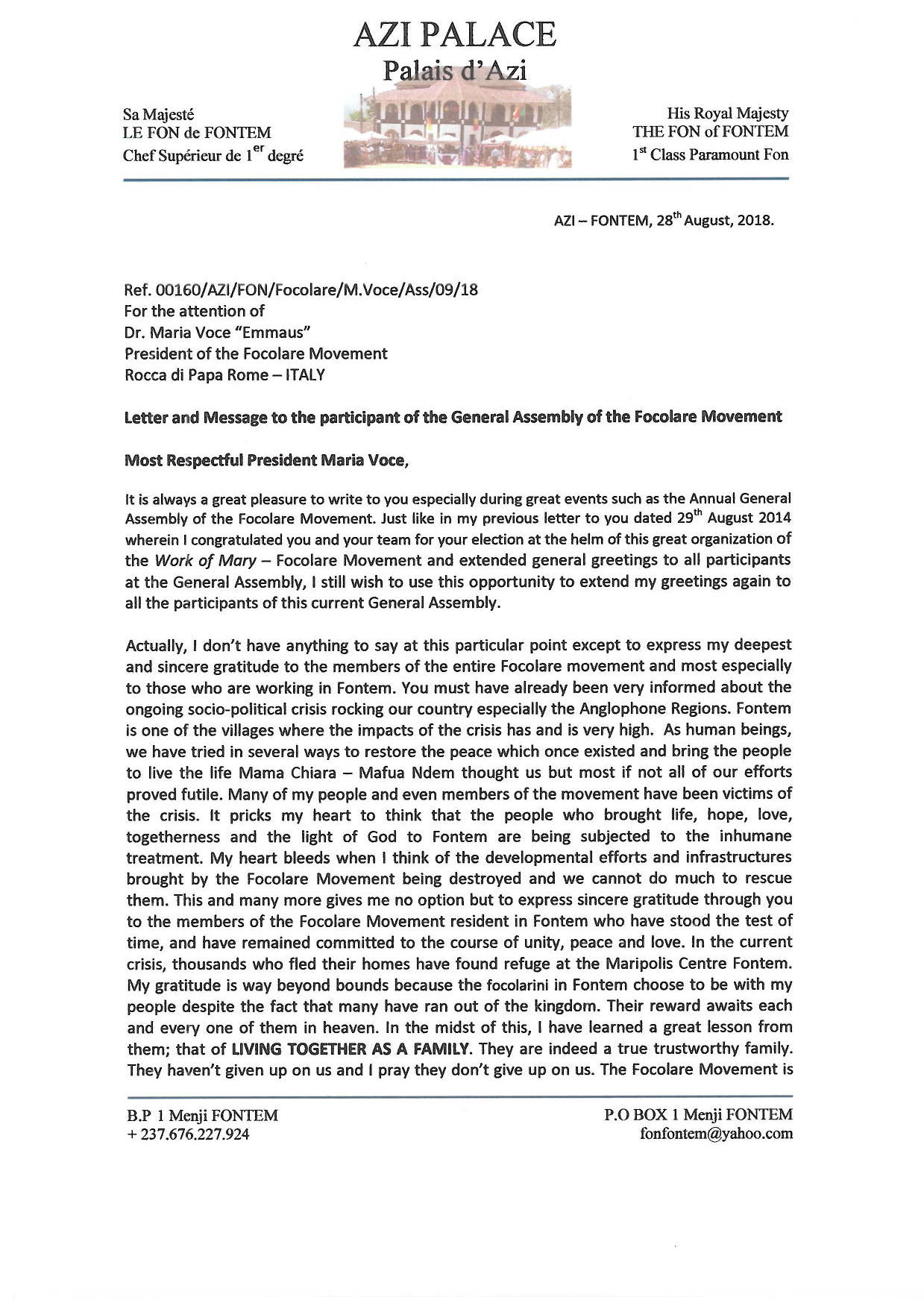 In the letter addressed to “the highly esteemed President Maria Voce”, Asabaton Fontem Njifua, the highest traditional authority of the place where the Focolare town is located (southeast of Cameroon), wrote: “I’ve nothing particular to say – he said in the letter sent on 28 August from Palias d’Azi – if not to express my deepest and sincere gratitude to the members of the Focolare Movement, especially those working in Fontem.” “You must have already been informed of the socio-political crisis rocking our country, especially in the Anglophone regions. Fontem is one of the villages that have been strongly hit by the crisis.” Recalling that one of his predecessors had named Chiara Lubich in 2000, as the “queen sent by God,” the Fon used bitter words to describe the current situation: “As human beings, we have tried in several ways to restore the peace that once existed and to bring the people to live the life which Mama Chiara – Mafua Ndem taught us. But the most part, if not all of our efforts, have been useless. Many of my people and even members of the Movement have been victims of the crisis. I think of the people who brought life, hope, love, togetherness and the light of God to Fontem, and who are now being subjected to inhuman treatment. My heart bleeds when I think of the development efforts and the infrastructure brought by the Focolare Movement, that are being destroyed. This and many other things push me to express my sincere gratitude to all the members of the Movement living in Fontem, who have stood the test and have remained committed to the cause of unity, peace and love.”
In the letter addressed to “the highly esteemed President Maria Voce”, Asabaton Fontem Njifua, the highest traditional authority of the place where the Focolare town is located (southeast of Cameroon), wrote: “I’ve nothing particular to say – he said in the letter sent on 28 August from Palias d’Azi – if not to express my deepest and sincere gratitude to the members of the Focolare Movement, especially those working in Fontem.” “You must have already been informed of the socio-political crisis rocking our country, especially in the Anglophone regions. Fontem is one of the villages that have been strongly hit by the crisis.” Recalling that one of his predecessors had named Chiara Lubich in 2000, as the “queen sent by God,” the Fon used bitter words to describe the current situation: “As human beings, we have tried in several ways to restore the peace that once existed and to bring the people to live the life which Mama Chiara – Mafua Ndem taught us. But the most part, if not all of our efforts, have been useless. Many of my people and even members of the Movement have been victims of the crisis. I think of the people who brought life, hope, love, togetherness and the light of God to Fontem, and who are now being subjected to inhuman treatment. My heart bleeds when I think of the development efforts and the infrastructure brought by the Focolare Movement, that are being destroyed. This and many other things push me to express my sincere gratitude to all the members of the Movement living in Fontem, who have stood the test and have remained committed to the cause of unity, peace and love.” 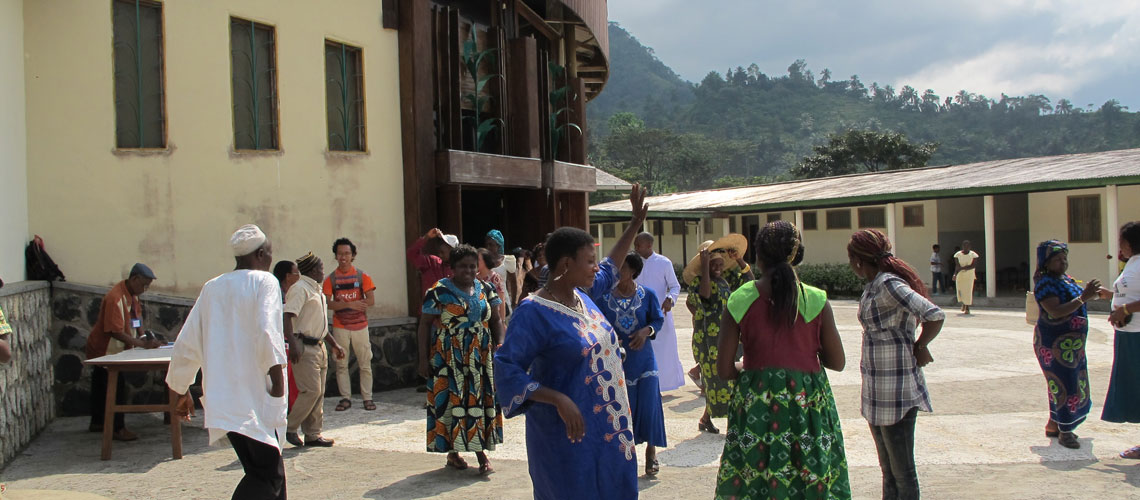 “In the current crisis – the king explained – thousands of people have fled their homes to find refuge in the Mariapolis Center of Fontem. My gratitude is way beyond bounds because the focolarini choose to be with my people, despite the fact that many have run away from the country. The reward awaits each and every one of them in heaven. In the midst of this, I have learned a great lesson from them – that of LIVING TOGETHER AS A FAMILY. They are indeed a true, trustworthy family. They haven’t given up on us and I pray they do not do so. The Focolare Movement is like the backbone of Fontem, without which we are nothing.” After urging us to pray to the Father for his people, and that peace return to Cameroon, the Fon concluded: “Our greatest desire is to live the words of Mama Chiara ’THAT ALL MAY BE ONE.’ Remember us in your prays because prayers are all we need now. Man has failed but God cannot fail.” See letter of HM Fon of Fontem
“In the current crisis – the king explained – thousands of people have fled their homes to find refuge in the Mariapolis Center of Fontem. My gratitude is way beyond bounds because the focolarini choose to be with my people, despite the fact that many have run away from the country. The reward awaits each and every one of them in heaven. In the midst of this, I have learned a great lesson from them – that of LIVING TOGETHER AS A FAMILY. They are indeed a true, trustworthy family. They haven’t given up on us and I pray they do not do so. The Focolare Movement is like the backbone of Fontem, without which we are nothing.” After urging us to pray to the Father for his people, and that peace return to Cameroon, the Fon concluded: “Our greatest desire is to live the words of Mama Chiara ’THAT ALL MAY BE ONE.’ Remember us in your prays because prayers are all we need now. Man has failed but God cannot fail.” See letter of HM Fon of Fontem
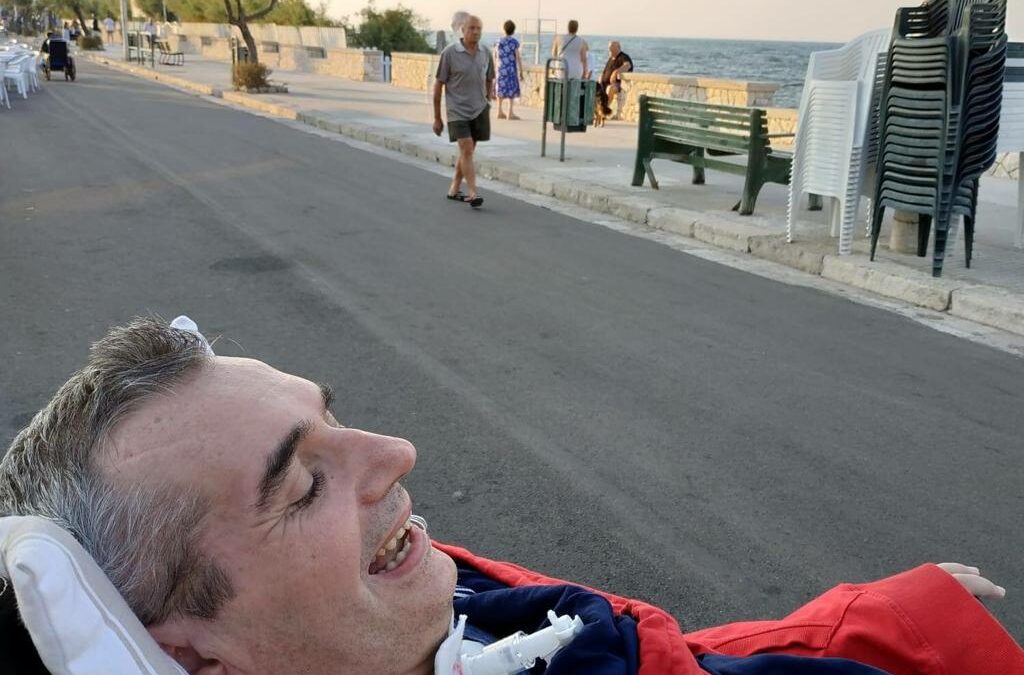
11 Sep 2018 | Focolare Worldwide
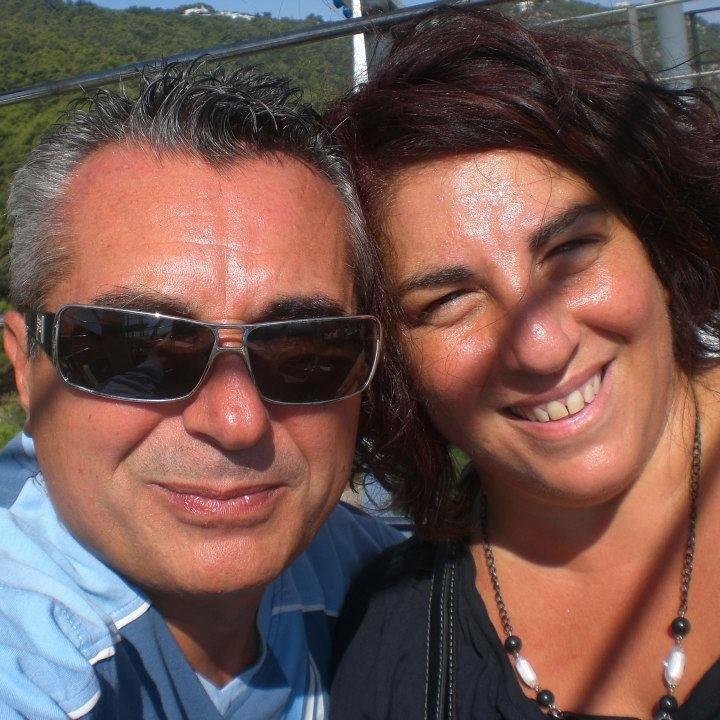 “The year was 1975. I was at high school in Sicily. Learning about Cicero’s denunciation of Cataline in ancient Rome sparked a lively discussion among me and my schoolmates about the hot topic of freedom. Our class teacher wisely channeled our increasingly heated argument into a formal debate between the supporters of Cicero, expressed by one of my companions, and those of Cataline, for whom I was the spokesperson. My passionate defense of freedom became so ardent that they all applauded me. And from that day, the idea of freedom has characterized my whole life. But what is freedom? And am I free?” Francesco is Italian; he is 59 and is married to Paola. The progressive nature of his illness means he can no longer move his body or speak. But he can move his eyes. Last year he started a blog, at the suggestion of a journalist who contacted him for a brief interview. At first Francesco used his thumbs and later began using an eye-gaze device, which may be slow but allows him to communicate the strength and dynamism he is finding within himself even as his body is becoming less active. His blog is entitled: “SLA: io Sono Libero d’Amare”. SLA = Sclerosi Laterale Amiotrofica translates as “ALS. I am Free to Love”. “I’m no author. But a voice within suggests what words to put down. I’ve found I’m watching a film of my life that I never knew of before. This is my strength and I’ve been able to start communicating in this way. I receive messages that are deeply moving. I’ve simply expressed some of my thoughts and I receive back so much love. People communicate their emotions, sufferings, joys and most of all, life!”
“The year was 1975. I was at high school in Sicily. Learning about Cicero’s denunciation of Cataline in ancient Rome sparked a lively discussion among me and my schoolmates about the hot topic of freedom. Our class teacher wisely channeled our increasingly heated argument into a formal debate between the supporters of Cicero, expressed by one of my companions, and those of Cataline, for whom I was the spokesperson. My passionate defense of freedom became so ardent that they all applauded me. And from that day, the idea of freedom has characterized my whole life. But what is freedom? And am I free?” Francesco is Italian; he is 59 and is married to Paola. The progressive nature of his illness means he can no longer move his body or speak. But he can move his eyes. Last year he started a blog, at the suggestion of a journalist who contacted him for a brief interview. At first Francesco used his thumbs and later began using an eye-gaze device, which may be slow but allows him to communicate the strength and dynamism he is finding within himself even as his body is becoming less active. His blog is entitled: “SLA: io Sono Libero d’Amare”. SLA = Sclerosi Laterale Amiotrofica translates as “ALS. I am Free to Love”. “I’m no author. But a voice within suggests what words to put down. I’ve found I’m watching a film of my life that I never knew of before. This is my strength and I’ve been able to start communicating in this way. I receive messages that are deeply moving. I’ve simply expressed some of my thoughts and I receive back so much love. People communicate their emotions, sufferings, joys and most of all, life!” 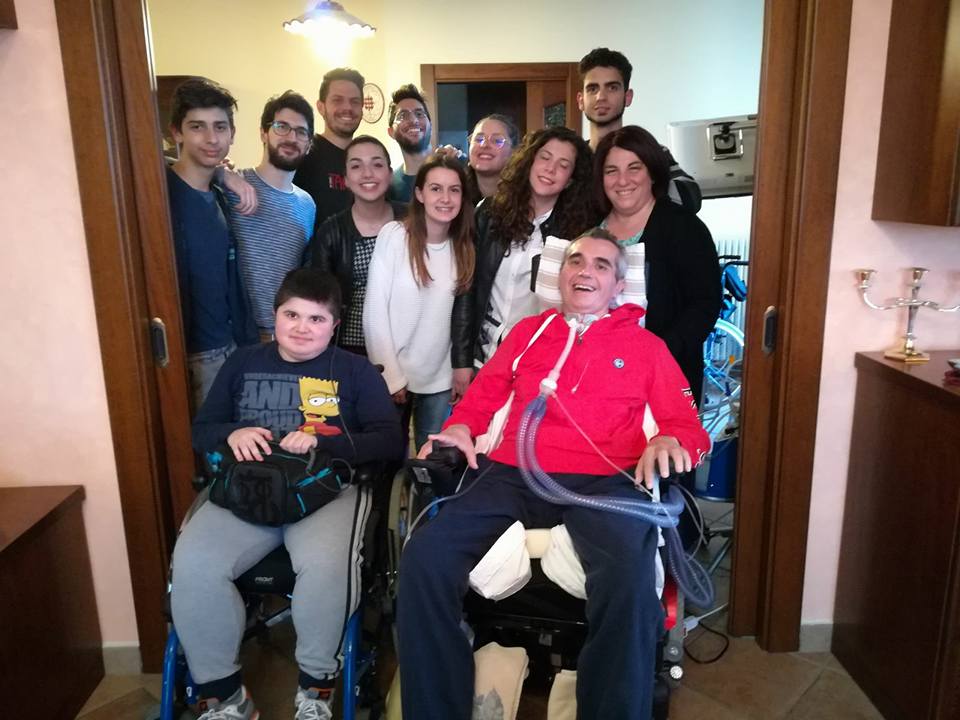 “In my life, I’ve always tried every day to find time for a personal and intimate moment with God. It’s not always been possible, but every time I passed a church, I’d say “Ciao” to Jesus present in the tabernacle. Often I would actually go inside the church just to dedicate a little bit of my time to God. I’d try to silence myself so that He could speak to me. And before leaving I’d entrust the difficulties of the day to Him, sometimes joking ‘Jesus, this one is yours because I certainly can’t solve it on my own’. And I have to say, He’s never let me down.” “How often, no matter how full our life may be, do we detect a feeling of emptiness or apathy inside us which covers our life with a veil of unhappiness?” “One man brought me a glimmer of light: Augustine of Hippo. Reading his Confessions prepared me for an event in August 1976 which changed my life: my meeting with God who is Love and who loves me immensely. How can I correspond to this infinite love? It was the Gospel, which I’d read but not actually lived, that gave me the answer: how can you love the God you do not see, if you don’t love the neighbour you do see? This was my Copernican revolution. I found myself among a group of friends living this experience: we would read the Gospel together and try to put it into practice. My heart practically exploded with joy, and I began to appreciate that even suffering can be life!”
“In my life, I’ve always tried every day to find time for a personal and intimate moment with God. It’s not always been possible, but every time I passed a church, I’d say “Ciao” to Jesus present in the tabernacle. Often I would actually go inside the church just to dedicate a little bit of my time to God. I’d try to silence myself so that He could speak to me. And before leaving I’d entrust the difficulties of the day to Him, sometimes joking ‘Jesus, this one is yours because I certainly can’t solve it on my own’. And I have to say, He’s never let me down.” “How often, no matter how full our life may be, do we detect a feeling of emptiness or apathy inside us which covers our life with a veil of unhappiness?” “One man brought me a glimmer of light: Augustine of Hippo. Reading his Confessions prepared me for an event in August 1976 which changed my life: my meeting with God who is Love and who loves me immensely. How can I correspond to this infinite love? It was the Gospel, which I’d read but not actually lived, that gave me the answer: how can you love the God you do not see, if you don’t love the neighbour you do see? This was my Copernican revolution. I found myself among a group of friends living this experience: we would read the Gospel together and try to put it into practice. My heart practically exploded with joy, and I began to appreciate that even suffering can be life!” 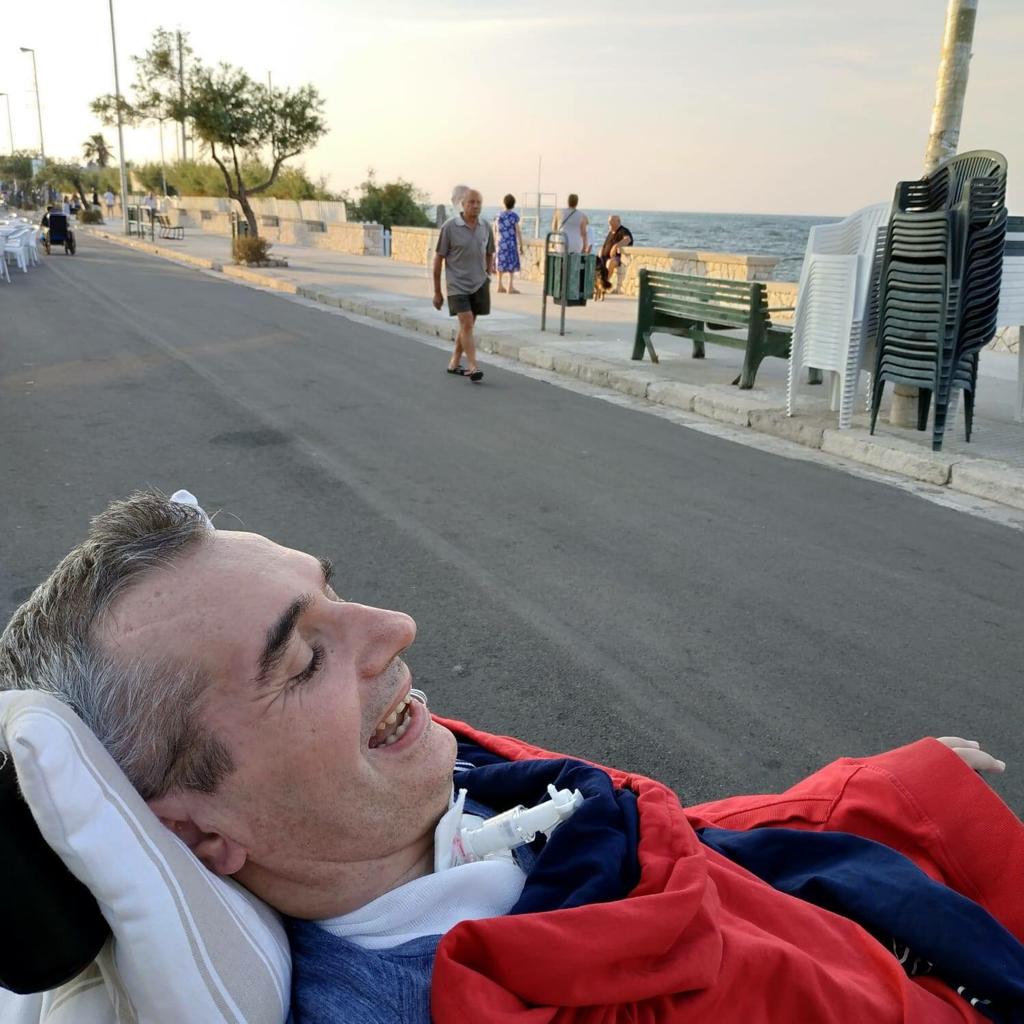 “I can still remember the smell of the sea, even if my illness has left me with no sense of smell, (…) I can feel the sensation of water on my skin, even if I’ve not been able to swim for the past three years. But this is not nostalgia. I’m not suffering over what I used to be or what I’ve become. I close my eyes and my body is floating. It’s not a dream or fantasy; it’s my Lord who continues to say to me ‘Do not fear’.” “This disease – ALS – was written in my heart from when I was born, but I didn’t know it until a few years ago. My tax code actually starts with ALS, and I don’t think it’s just coincidence! I don’t believe in fate, but I trust in one who has chosen me as her son and has never abandoned me. Mary, the mother of Jesus is my safety net, like the one a trapeze artist has (…).” “It is an experience that keeps on repeating itself, every time I’m assailed by doubt and I feel my hope sinking. Mary is always there, so I can’t be afraid! (…) Mary has marked out the way for me, and Chiara Lubich has taught me every day to point my interior compass on Jesus Forsaken on the cross. He is the secret to finding the Truth.” “Living the present moment perfectly brings us into God eternally. That’s what Chiara has taught me. And in the present moment I can cry out loud, maybe not with my voice but with my heart: I am FREE TO LOVE!” (In Italian = “SONO LIBERO di AMARE!” SLA – Sclerosi Laterale Amiotrofica). Extracts from Francesco’s blog (in Italian)
“I can still remember the smell of the sea, even if my illness has left me with no sense of smell, (…) I can feel the sensation of water on my skin, even if I’ve not been able to swim for the past three years. But this is not nostalgia. I’m not suffering over what I used to be or what I’ve become. I close my eyes and my body is floating. It’s not a dream or fantasy; it’s my Lord who continues to say to me ‘Do not fear’.” “This disease – ALS – was written in my heart from when I was born, but I didn’t know it until a few years ago. My tax code actually starts with ALS, and I don’t think it’s just coincidence! I don’t believe in fate, but I trust in one who has chosen me as her son and has never abandoned me. Mary, the mother of Jesus is my safety net, like the one a trapeze artist has (…).” “It is an experience that keeps on repeating itself, every time I’m assailed by doubt and I feel my hope sinking. Mary is always there, so I can’t be afraid! (…) Mary has marked out the way for me, and Chiara Lubich has taught me every day to point my interior compass on Jesus Forsaken on the cross. He is the secret to finding the Truth.” “Living the present moment perfectly brings us into God eternally. That’s what Chiara has taught me. And in the present moment I can cry out loud, maybe not with my voice but with my heart: I am FREE TO LOVE!” (In Italian = “SONO LIBERO di AMARE!” SLA – Sclerosi Laterale Amiotrofica). Extracts from Francesco’s blog (in Italian)
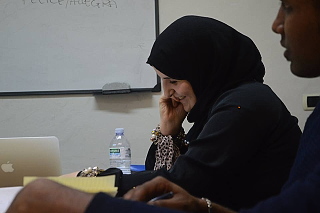
9 Sep 2018 | Focolare Worldwide

Maurizio Certini
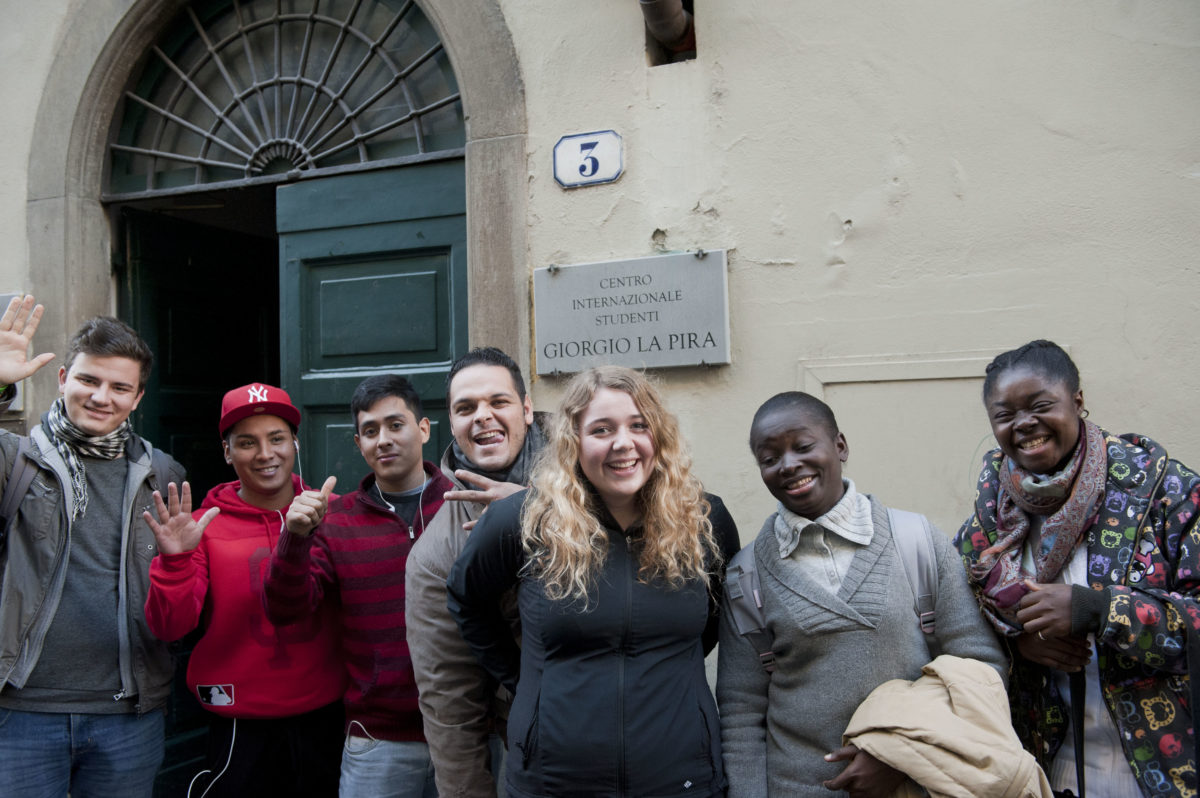 What is the situation now, forty years later? Of course, living conditions for overseas students, who are very able but without much financial support, have certainly improved, thanks to their being exempt from taxes and to the availability of accommodation and canteens. Nonetheless, coming here to study still poses significant challenges. They are far from home and have to look after themselves; it is hard to study in a cultural context they know very little about; there is a great deal of bureaucracy and also the attraction of consumerism. When you get to know the stories of these young people, you are struck by their courage and fortitude in tough times and their perseverance in facing difficulties. More serious problems can arise in the second or third year when, even though they are willing and highly motivated, they don’t get enough credits to stay in the university residences. Suddenly, it is as though they are standing on a precipice, and that can make them start going downhill, which eventually leads to them abandoning their studies and their dreams being ruined. How many young people have passed through the Centre? A huge number. We were keen to address their needs and find solutions, so as to give them hope. Many of them were disappointed and discouraged but managed to pick themselves up and finish their studies. Studying at an overseas university is a unique opportunity both culturally and professionally. However, special attention is needed to link the academic aspect with their need to connect among themselves and with others. This needs to be coordinated and be sensitive to cultural and religious differences, putting the students themselves at the centre, accompanying them in an integral way.
What is the situation now, forty years later? Of course, living conditions for overseas students, who are very able but without much financial support, have certainly improved, thanks to their being exempt from taxes and to the availability of accommodation and canteens. Nonetheless, coming here to study still poses significant challenges. They are far from home and have to look after themselves; it is hard to study in a cultural context they know very little about; there is a great deal of bureaucracy and also the attraction of consumerism. When you get to know the stories of these young people, you are struck by their courage and fortitude in tough times and their perseverance in facing difficulties. More serious problems can arise in the second or third year when, even though they are willing and highly motivated, they don’t get enough credits to stay in the university residences. Suddenly, it is as though they are standing on a precipice, and that can make them start going downhill, which eventually leads to them abandoning their studies and their dreams being ruined. How many young people have passed through the Centre? A huge number. We were keen to address their needs and find solutions, so as to give them hope. Many of them were disappointed and discouraged but managed to pick themselves up and finish their studies. Studying at an overseas university is a unique opportunity both culturally and professionally. However, special attention is needed to link the academic aspect with their need to connect among themselves and with others. This needs to be coordinated and be sensitive to cultural and religious differences, putting the students themselves at the centre, accompanying them in an integral way.  Can an association supported mainly by volunteers have an impact on politics and society? Giorgio La Pira often quoted the words of the great renaissance architect, Leon Battista Alberti: What is a city? It’s a big house for a big family”. Today the whole world is a global city. Through our work, we look at the world’s cities through the eyes and stories of our many “guests” and we are open to reciprocity. The word “ospite” in Italian means both host and guest. At the Centre we seek to generate community knowing that we are in an ever more pluralistic social context. We need people who are open to dialogue and who can integrate with one another reciprocally. Today people’s need for community is particularly strong: the world is always in a rush, it’s alienating; there is growing violence, lies, suspicion and fear. Our little ‘field of action’ broadens out every day to the level of citizenship, both national and international. We believe we can win only if we generate community, wanting to build up society as a civil body, putting the human person and their dignity at the heart of everything we do. By Chiara Favotti
Can an association supported mainly by volunteers have an impact on politics and society? Giorgio La Pira often quoted the words of the great renaissance architect, Leon Battista Alberti: What is a city? It’s a big house for a big family”. Today the whole world is a global city. Through our work, we look at the world’s cities through the eyes and stories of our many “guests” and we are open to reciprocity. The word “ospite” in Italian means both host and guest. At the Centre we seek to generate community knowing that we are in an ever more pluralistic social context. We need people who are open to dialogue and who can integrate with one another reciprocally. Today people’s need for community is particularly strong: the world is always in a rush, it’s alienating; there is growing violence, lies, suspicion and fear. Our little ‘field of action’ broadens out every day to the level of citizenship, both national and international. We believe we can win only if we generate community, wanting to build up society as a civil body, putting the human person and their dignity at the heart of everything we do. By Chiara Favotti

 The next international itinerary of Pope Francis’s apostolic journeys will be in Lithuania, Latvia and Estonia, which will take place from 22 to 25 September, on the occasion of the centennial celebrations of the first declaration of independence of the three Baltic states of Russia. Among the most important events will be the prayer at the Museum of Occupations and Freedom Fights, known as the Museum of the Genocide Victims in Vilnius (Lithuania), the ecumenical meeting in Riga (Latvia), and the visit to the beneficiaries of the Works of Charity of Tallin (Estonia). The visit to the so-called Genocide Museum will be particularly symbolical because it was used by the secret police of the Soviet Union from 1944, the year in which Lithuania returned under the control of the USSR, up to 1991 when it regained its independence. Besides hosting the officials of the State Security Committee, the building acted as the venue for interrogations and as a prison for the political opponents of the communist regime. But the history of horror in this building started even earlier, in 1941 when the Nazis invaded Lithuania and the building was set up as the general headquarters of the Gestapo. In the three years between 1941 and 1944, about 100 thousand victims, a third of the city’s inhabitants, mostly Jews, were killed in Vilnius alone. Precisely to recall these horrors of the occupation, the Government decided to convert the building into a place of remembrance. In the various legs of his trip, the Pope will pay homage to the painful history of a population which has remained deeply anchored to its own Christian roots, despite the persecutions.
The next international itinerary of Pope Francis’s apostolic journeys will be in Lithuania, Latvia and Estonia, which will take place from 22 to 25 September, on the occasion of the centennial celebrations of the first declaration of independence of the three Baltic states of Russia. Among the most important events will be the prayer at the Museum of Occupations and Freedom Fights, known as the Museum of the Genocide Victims in Vilnius (Lithuania), the ecumenical meeting in Riga (Latvia), and the visit to the beneficiaries of the Works of Charity of Tallin (Estonia). The visit to the so-called Genocide Museum will be particularly symbolical because it was used by the secret police of the Soviet Union from 1944, the year in which Lithuania returned under the control of the USSR, up to 1991 when it regained its independence. Besides hosting the officials of the State Security Committee, the building acted as the venue for interrogations and as a prison for the political opponents of the communist regime. But the history of horror in this building started even earlier, in 1941 when the Nazis invaded Lithuania and the building was set up as the general headquarters of the Gestapo. In the three years between 1941 and 1944, about 100 thousand victims, a third of the city’s inhabitants, mostly Jews, were killed in Vilnius alone. Precisely to recall these horrors of the occupation, the Government decided to convert the building into a place of remembrance. In the various legs of his trip, the Pope will pay homage to the painful history of a population which has remained deeply anchored to its own Christian roots, despite the persecutions.





 “In the current crisis – the king explained – thousands of people have fled their homes to find refuge in the Mariapolis Center of Fontem. My gratitude is way beyond bounds because the focolarini choose to be with my people, despite the fact that many have run away from the country. The reward awaits each and every one of them in heaven. In the midst of this, I have learned a great lesson from them – that of LIVING TOGETHER AS A FAMILY. They are indeed a true, trustworthy family. They haven’t given up on us and I pray they do not do so. The Focolare Movement is like the backbone of Fontem, without which we are nothing.” After urging us to pray to the Father for his people, and that peace return to Cameroon, the Fon concluded: “Our greatest desire is to live the words of Mama Chiara ’
“In the current crisis – the king explained – thousands of people have fled their homes to find refuge in the Mariapolis Center of Fontem. My gratitude is way beyond bounds because the focolarini choose to be with my people, despite the fact that many have run away from the country. The reward awaits each and every one of them in heaven. In the midst of this, I have learned a great lesson from them – that of LIVING TOGETHER AS A FAMILY. They are indeed a true, trustworthy family. They haven’t given up on us and I pray they do not do so. The Focolare Movement is like the backbone of Fontem, without which we are nothing.” After urging us to pray to the Father for his people, and that peace return to Cameroon, the Fon concluded: “Our greatest desire is to live the words of Mama Chiara ’
 “The year was 1975. I was at high school in Sicily. Learning about Cicero’s denunciation of Cataline in ancient Rome sparked a lively discussion among me and my schoolmates about the hot topic of freedom. Our class teacher wisely channeled our increasingly heated argument into a formal debate between the supporters of Cicero, expressed by one of my companions, and those of Cataline, for whom I was the spokesperson. My passionate defense of freedom became so ardent that they all applauded me. And from that day, the idea of freedom has characterized my whole life. But what is freedom? And am I free?” Francesco is Italian; he is 59 and is married to Paola. The progressive nature of his illness means he can no longer move his body or speak. But he can move his eyes. Last year he started a blog, at the suggestion of a journalist who contacted him for a brief interview. At first Francesco used his thumbs and later began using an eye-gaze device, which may be slow but allows him to communicate the strength and dynamism he is finding within himself even as his body is becoming less active. His blog is entitled: “SLA: io Sono Libero d’Amare”. SLA = Sclerosi Laterale Amiotrofica translates as “ALS. I am Free to Love”. “I’m no author. But a voice within suggests what words to put down. I’ve found I’m watching a film of my life that I never knew of before. This is my strength and I’ve been able to start communicating in this way. I receive messages that are deeply moving. I’ve simply expressed some of my thoughts and I receive back so much love. People communicate their emotions, sufferings, joys and most of all, life!”
“The year was 1975. I was at high school in Sicily. Learning about Cicero’s denunciation of Cataline in ancient Rome sparked a lively discussion among me and my schoolmates about the hot topic of freedom. Our class teacher wisely channeled our increasingly heated argument into a formal debate between the supporters of Cicero, expressed by one of my companions, and those of Cataline, for whom I was the spokesperson. My passionate defense of freedom became so ardent that they all applauded me. And from that day, the idea of freedom has characterized my whole life. But what is freedom? And am I free?” Francesco is Italian; he is 59 and is married to Paola. The progressive nature of his illness means he can no longer move his body or speak. But he can move his eyes. Last year he started a blog, at the suggestion of a journalist who contacted him for a brief interview. At first Francesco used his thumbs and later began using an eye-gaze device, which may be slow but allows him to communicate the strength and dynamism he is finding within himself even as his body is becoming less active. His blog is entitled: “SLA: io Sono Libero d’Amare”. SLA = Sclerosi Laterale Amiotrofica translates as “ALS. I am Free to Love”. “I’m no author. But a voice within suggests what words to put down. I’ve found I’m watching a film of my life that I never knew of before. This is my strength and I’ve been able to start communicating in this way. I receive messages that are deeply moving. I’ve simply expressed some of my thoughts and I receive back so much love. People communicate their emotions, sufferings, joys and most of all, life!” 



 What is the situation now, forty years later? Of course, living conditions for overseas students, who are very able but without much financial support, have certainly improved, thanks to their being exempt from taxes and to the availability of accommodation and canteens. Nonetheless, coming here to study still poses significant challenges. They are far from home and have to look after themselves; it is hard to study in a cultural context they know very little about; there is a great deal of bureaucracy and also the attraction of consumerism. When you get to know the stories of these young people, you are struck by their courage and fortitude in tough times and their perseverance in facing difficulties. More serious problems can arise in the second or third year when, even though they are willing and highly motivated, they don’t get enough credits to stay in the university residences. Suddenly, it is as though they are standing on a precipice, and that can make them start going downhill, which eventually leads to them abandoning their studies and their dreams being ruined. How many young people have passed through the Centre? A huge number. We were keen to address their needs and find solutions, so as to give them hope. Many of them were disappointed and discouraged but managed to pick themselves up and finish their studies. Studying at an overseas university is a unique opportunity both culturally and professionally. However, special attention is needed to link the academic aspect with their need to connect among themselves and with others. This needs to be coordinated and be sensitive to cultural and religious differences, putting the students themselves at the centre, accompanying them in an integral way.
What is the situation now, forty years later? Of course, living conditions for overseas students, who are very able but without much financial support, have certainly improved, thanks to their being exempt from taxes and to the availability of accommodation and canteens. Nonetheless, coming here to study still poses significant challenges. They are far from home and have to look after themselves; it is hard to study in a cultural context they know very little about; there is a great deal of bureaucracy and also the attraction of consumerism. When you get to know the stories of these young people, you are struck by their courage and fortitude in tough times and their perseverance in facing difficulties. More serious problems can arise in the second or third year when, even though they are willing and highly motivated, they don’t get enough credits to stay in the university residences. Suddenly, it is as though they are standing on a precipice, and that can make them start going downhill, which eventually leads to them abandoning their studies and their dreams being ruined. How many young people have passed through the Centre? A huge number. We were keen to address their needs and find solutions, so as to give them hope. Many of them were disappointed and discouraged but managed to pick themselves up and finish their studies. Studying at an overseas university is a unique opportunity both culturally and professionally. However, special attention is needed to link the academic aspect with their need to connect among themselves and with others. This needs to be coordinated and be sensitive to cultural and religious differences, putting the students themselves at the centre, accompanying them in an integral way.